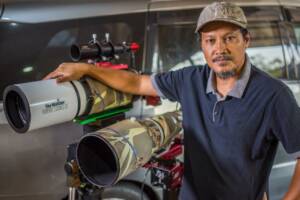
Under Malaysian Skies: Zaki’s Passion for Deep Sky Imaging
1.How It All Began I have been a fan of astronomy since high school.Starting from a school event where I can see the moon up close through a telescope.When I
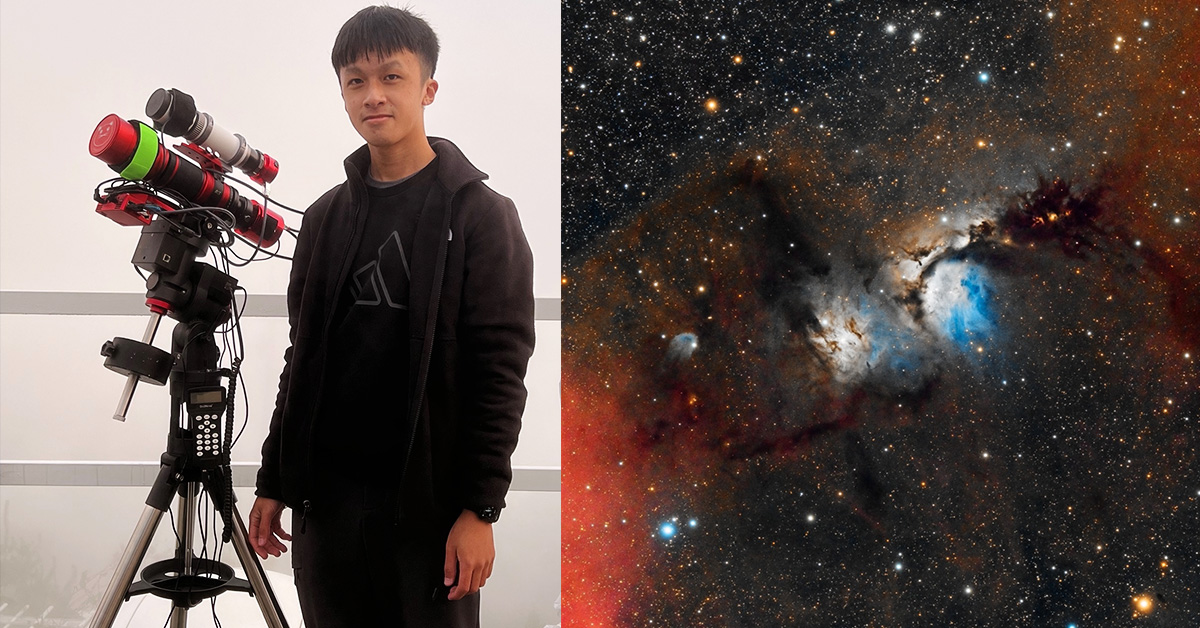
First, I want to thank all ZWO judges for their affirmations. I’m appreciated to be the winner of ASIWEEK. My name is Chien-Yu Chen. I’m a 16-year-old senior high school student from Taiwan. I love astrophotography, physics, and music.
I think astronomy is mysterious and professional. I have been engaged in astrophotography for one year. By doing astrophotography, I can discover the beauty of the universe.
For Deep Sky imaging, I use WO FLT 91, ASI533MC Pro, iOptron GEM28. I also have WO RedCat51. For wide field, I use modified Canon EOS RP, Sigma 135mm f/1.8 art, iOptron SkyGuider Pro. You can see them in the down picture.
I prefer shooting Deep Sky because I think Deep Sky objects are fantastic. I tend to photograph planets during major celestial events such as Lunar Eclipse.

I think image processing is the most difficult part. Equipment can be solved with money, but image processing requires continuous practice. Somebody uses good equipment but can’t get good photos.
I don’t take long time to process astrophotos. I spend an average of 1-2 hours processing one astrophoto. I use PixInsight now, and I think it’s powerful.
You can search for information online or communicate with friends who also do astrophotography. You can start with a brighter target like M42 or M45. I advise you invest more exposure time on the same target instead of shooting several targets at once. I believe you will get good results.
This object is bright enough that I could get lots of detail with only 6.5 hours exposure. I only use less than one hour to process this image. I think it’s a good target for beginners.
I mostly take my astrophotos on my balcony, but it has serious light pollution. I sometimes go to Mountain Hehuan, which has Bortle2 sky. As for this M78, I took this picture at a homestay which is also located in Mountain Hehuan.

Since I can process images quickly, image processing doesn’t take up much of my reading time. I can also study while taking astrophotos on my balcony because I shoot automatically with ASIAIR.

I am the president of the Astronomical Club of Taichung First Senior High School. During club class time, we will teach our members about astronomical knowledge, such as astrophysics, constellations, and astrophotography. Since we’re 30th this year, we’ve also released the Astronomical Desk Calendar for 2022.

I have ASI462MC for guiding and planet photography. I just bought ASI294MC Pro for deep sky imaging. I am satisfied with ZWO cameras.
They think it’s a good interest because they can discover the beauty of the universe through these astrophotos. They support me a lot.
Because it’s just my first year of astrophotography, I don’t have many achievements. In AstroBin, I got a Top Pick and four Top Pick nominations. In the ZWO Facebook group “ZWO ASI Cameras”, I won the ASIWEEK once. In 2022, I want to capture more special DSO. I also want to get on APOD though it’s difficult. I will do my best for better astrophotos!
I think all ZWO’s products are great. I especially like ASIAIR because it makes astrophotography quite easy. I can just control my equipment with my phone without having to bring a computer. I hope ASIAIR can add mosaic planning function like NINA. Then I don’t need to copy the coordinates to the phone one by one. This will make ASIAIR even better.

1.How It All Began I have been a fan of astronomy since high school.Starting from a school event where I can see the moon up close through a telescope.When I
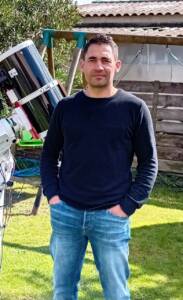
1. How It All Began For Puig Nicolas, it all started at the age of 10 with a 60/700 refractor and a 114/900 reflector. His first celestial encounters — the
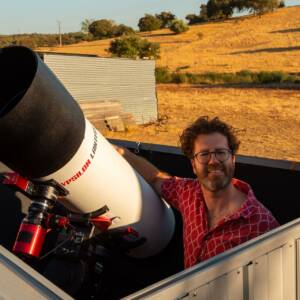
By day, David Cruz works as a digital designer. By night, he designs something far greater — images of the universe itself. “Since I was young, I was always interested
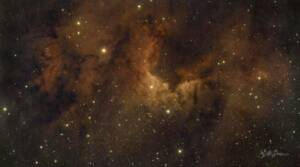
bbrown_admin, October 30, 2025 INITIAL IMPRESSIONS: The ZWO ASI585MC Air came well packaged from the manufacturer. The box is improved and has an impressive feel with a magnetic closure on
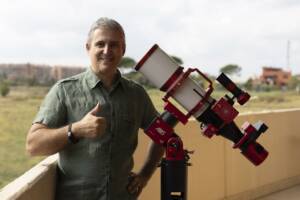
– Q3 ASIWEEK Winner Gianni Lacroce’s Astrophotography Journey Hi, I’m Gianni Lacroce, an Italian astrophotographer. My passion for the night sky began long before I owned a telescope or a
1 Comment
Ron Hunt
feichang hao!
ni de zhaopian dou hen piaoliang!!!